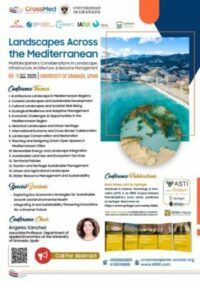ISSN (online): 2075-5309
Call of the Journal:
- Advanced Concrete Materials in Construction
- Advanced Methods for Structural Rehabilitation
- Advances in Civil Engineering Materials: Design, Characterization, Corrosion and Durability
- Climate Resilient Buildings
- Computer Aided Architectural Design
- Innovations in Building Integrated Photovoltaic Systems
- Managing Innovation and Innovation Risks in Construction Projects
- New Approaches to Modelling Occupant Comfort
- Performance-Based Design of Buildings
- Protection of Buildings with Historic, Architectural or Cultural Value
- Recent Advances in Design, Construction, and Maintenance of Buildings
- Seismic Performance Assessment of Buildings
- Seismic Safety Assessment of Existing Constructions
- Structural Dynamics and Analysis of Civil Structures and Engineering Materials
- Sustainable and Green Construction Materials | Opportunities for New and Existing Structures
- Sustainable Concrete Construction | Methods and Practices
- The Architecture of Collective Housing
- Thermal Performance of Buildings and Building Components | Renewed Role, New Expectations, and Old Challenges
Feb
2021
In the construction industry, it is of utmost importance to find and implement effective solutions for issues such as the disastrous environmental impact of construction, the current shortage of skilled labor and also the fast-changing consecutive market needs. Substantial innovations are needed, ranging from new building materials and components to complete new digitized industrialized ecosystems. Ideally, these innovations will not only contribute to shorter building times, lower failure costs or a higher building quality, but also to an appealing increase in the supply of sustainable and circular building concepts. As the magnitude of change and the complexity of an innovation project increase, so does the uncertainty on the future performance of the intended innovation and, consequently, the need to actively assess and manage the associated risks during its development, testing, realization and possible adoption and diffusion process. The aim of the Special Issue is to consistently extend the concepts and theories regarding innovation and innovation risk management in construction and civil engineering projects. We expect research and methodologies consistent with the highest standards. These may include qualitative, quantitative and mixed method approaches. Contributions should highlight the key role of innovation and innovation risk management in construction and their implications for practice. We also welcome research articles bridging the gap between theoretical conceptions and practical insights.
Studies might be focused on but are not limited to the following areas of research and related topics: The role of the public client in the construction innovation process; Risk allocation in innovation projects: public clients, engineering firms, contractors and suppliers; From BIM towards developing ecosystems in construction; Risk strategies in innovation projects; Modularization and industrialization in construction; Adoption of innovations in construction and civil engineering projects; Barriers and enablers for innovation in construction; Organizing for technology development and innovation in construction projects; Procurement procedures to encourage innovation in construction; 3D printing, robots and augmented reality in construction projects; Big data and predictive analysis as input for innovation in construction; The development of an ecosystem for the construction industry; Building more sustainable construction practices.
Managing Innovation and Innovation Risks in Construction Projects
In the construction industry, it is of utmost importance to find and implement effective solutions for issues such as the disastrous environmental impact of construction, the current shortage of skilled labor and also the fast-changing consecutive market needs. Substantial innovations are needed, ranging from new building materials and components to complete new digitized industrialized ecosystems. Ideally, these innovations will not only contribute to shorter building times, lower failure costs or a higher building quality, but also to an appealing increase in the supply of sustainable and circular building concepts. As the magnitude of change and the complexity of an innovation project increase, so does the uncertainty on the future performance of the intended innovation and, consequently, the need to actively assess and manage the associated risks during its development, testing, realization and possible adoption and diffusion process. The aim of the Special Issue is to consistently extend the concepts and theories regarding innovation and innovation risk management in construction and civil engineering projects. We expect research and methodologies consistent with the highest standards. These may include qualitative, quantitative and mixed method approaches. Contributions should highlight the key role of innovation and innovation risk management in construction and their implications for practice. We also welcome research articles bridging the gap between theoretical conceptions and practical insights.
Studies might be focused on but are not limited to the following areas of research and related topics: The role of the public client in the construction innovation process; Risk allocation in innovation projects: public clients, engineering firms, contractors and suppliers; From BIM towards developing ecosystems in construction; Risk strategies in innovation projects; Modularization and industrialization in construction; Adoption of innovations in construction and civil engineering projects; Barriers and enablers for innovation in construction; Organizing for technology development and innovation in construction projects; Procurement procedures to encourage innovation in construction; 3D printing, robots and augmented reality in construction projects; Big data and predictive analysis as input for innovation in construction; The development of an ecosystem for the construction industry; Building more sustainable construction practices.
Current Contents – Engineering, Computing & Technology (Clarivate Analytics), DOAJ, Genamics JournalSeek, Inspec (IET), Julkaisufoorumi Publication Forum (Federation of Finnish Learned Societies), Norwegian Register for Scientific Journals, Series and Publishers (NSD), Science Citation Index Expanded – Web of Science (Clarivate Analytics), Scopus (Elsevier), Web of Science (Clarivate Analytics), CLOCKSS (Digital Archive), e-Helvetica (Swiss National Library Digital Archive), Academic OneFile (Gale/Cengage Learning), EBSCOhost (EBSCO Publishing), Google Scholar, J-Gate (Informatics India), Materials Science & Engineering (ProQuest), METADEX/Metals Abstracts (ProQuest), ProQuest Central (ProQuest), Science In Context (Gale/Cengage Learning), WorldCat (OCLC).
Info at: www.mdpi.com/journal/buildings/apc
Guest Editors
Prof. Dr. Johannes I.M. Halman
Dr. Jimme A. Keizer










